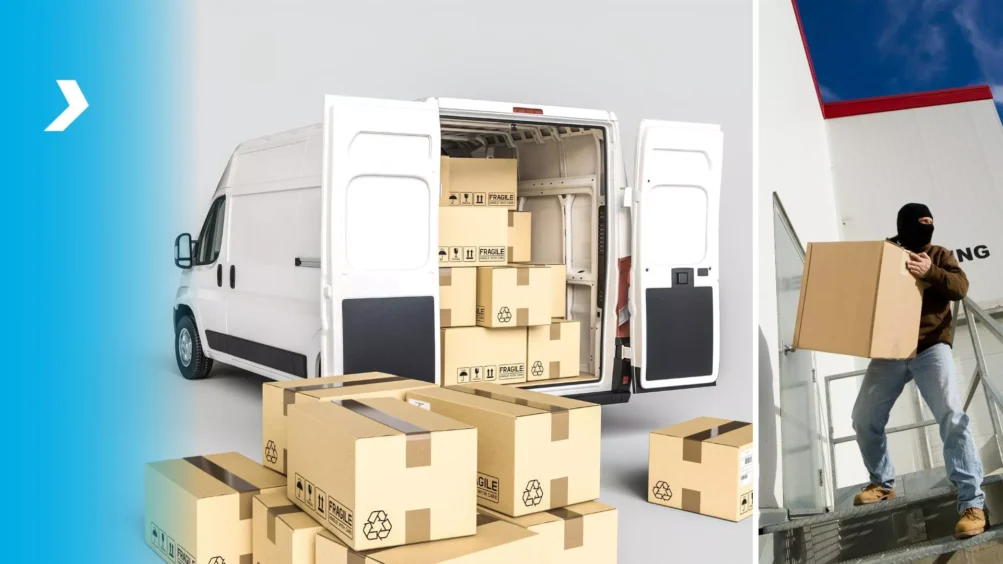
Securing the Supply Chain: Innovative Strategies to Combat Rising Cargo Theft
Cargo theft has been a huge problem in the industry. Our owner-operators and truck drivers frequently mentioned this issue when discussing current logistics challenges. Recent statistics also support this concern, showing a 68% increase in cargo theft compared to last year. This problem primarily affects the food and beverages, electronics, and household goods sectors, posing major financial and reputation challenges for logistics companies and owner-operators. Addressing this issue requires developing and applying innovative strategies, some of which we’d like to discuss in this blog and share with you voluntarily.
Analysis of the Current Threat
Cargo theft remains a big problem for the logistics industry, an undisputable fact in today’s market. Commonly stolen items include food and beverages, electronics, and household goods, primarily due to their high resale value and ease of transport. Thieves are becoming more sophisticated, using various methods to exploit weaknesses within the supply chain.
Geographically, certain regions are more prone to cargo theft than others. States such as California, Texas, Florida, Georgia, and Kentucky are recognized hotspots. In these regions, the high volume of freight traffic and numerous shipping hubs create opportunities for theft. These areas require heightened security measures and constant vigilance from logistics providers and owner-operators.
Thieves use a range of tactics to carry out their activities. One of them is identity theft, where criminals impersonate legitimate drivers or logistics personnel to gain access to cargo. They may use fake identification and credentials to pick up shipments, leading to significant losses. Fictitious pickups, where thieves set up fake companies to intercept loads, are also on the rise. These schemes can be difficult to detect without advanced verification processes.
Another common theft tactic involves breaking into trailers and warehouses. Thieves often target unattended vehicles or facilities with inadequate security measures. They may use tools to bypass locks or exploit weaknesses in surveillance systems. In some cases, thieves collaborate with insiders who provide information about shipments and security protocols.
To combat these threats, logistics companies adopt innovative security strategies, like advanced tracking technologies, improved verification processes, and enhanced physical security measures. They also strive to stay informed about the latest tactics used by criminals and regularly update security protocols to protect their assets and reduce the impact of cargo theft.
The Industry’s Response
The rise in cargo theft has highlighted significant gaps in the regulatory framework governing identity verification at logistics points. Current regulations lack the strict measures to prevent criminals from exploiting these weaknesses. Without robust verification protocols, it is relatively easy for thieves to assume false identities and gain access to valuable shipments.
This regulatory shortfall has prompted many companies to seek more reliable methods to protect their cargo. One of the most promising solutions is the implementation of advanced technology. Logistics companies excel significantly in reducing the risk of theft by integrating cutting-edge systems into their operations.
Many businesses are adopting blockchain technology to enhance transparency and security in the supply chain. Blockchain’s decentralized nature ensures that each transaction is recorded and immutable, making it nearly impossible for unauthorized changes to go unnoticed. This technology helps track the movement of goods by verifying the identities of all parties involved in the shipment process.
In addition to blockchain, carriers rely on GPS tracking devices. These devices allow companies to monitor their cargo in real-time, providing immediate alerts if a shipment deviates from its expected route. This real-time visibility is crucial for responding quickly to potential theft and recovering stolen goods.
Another technological advancement is the use of biometric verification systems. These systems can verify the identities of drivers and logistics personnel through fingerprint scans or facial recognition, significantly reducing the chances of identity fraud. They ensure that only authorized individuals handle shipments, adding an extra layer of security to operations.
Artificial intelligence (AI) and machine learning also help in combating cargo theft. These technologies can analyze vast amounts of data to identify patterns and predict potential thefts before they occur. AI-driven surveillance systems can detect suspicious activities and alert security personnel, enabling a swift response to prevent theft.
As you may see, the industry’s shift towards technology-driven solutions marks a significant step in the fight against cargo theft. By doing so, businesses strive to fill the regulatory gaps, better safeguard their operations, and reduce financial and reputational losses.
Technological Innovations in Cargo Security
The logistics industry is increasingly turning to technology to address the growing threat of cargo theft. Among other actions, this turn involves using real-time tracking systems. These systems provide continuous visibility into the location and status of shipments, enabling companies to monitor their cargo throughout the journey. Thanks to real-time alerts, logistics managers can quickly respond to any unusual activities or deviations from planned routes, enhancing the security of their operations.
Integrating IoT (Internet of Things) sensors is another great investment into supply chain security. These sensors can be attached to cargo and vehicles, providing detailed data on various conditions such as temperature, humidity, and motion. This information is then used to ensure the integrity of sensitive shipments, such as perishable goods and electronics. IoT sensors also help detect potential security breaches, such as unauthorized access or tampering.

None of today’s security measures can be considered complete without artificial intelligence (AI). AI-driven security software can analyze tons of data to identify patterns and predict theft probabilities. It learns from historical data and current trends, suggesting safer routes and highlighting high-risk areas.
Machine learning, a subset of AI, is beneficial for improving security protocols. It can continuously learn from new data, refining its algorithms to become more accurate over time. This means that the more data the system processes, the better it becomes at predicting and preventing theft.
Furthermore, geofencing technology is used to create virtual boundaries around specific areas. When a vehicle or cargo crosses these predefined boundaries, alerts are triggered, notifying security personnel of potential threats. Geofencing helps keep goods within safe zones, preventing many problems in the long run.
The adoption of real-time tracking, IoT sensors, AI, and geofencing allows logistics companies to safeguard their shipments, reduce the incidence of theft, and maintain the integrity of their supply chains. These tools should become an integral part of every logistics strategy, as they are the only way to enhance supply chain security in today’s technology-driven world.
Conclusion:
Staying ahead in the fight against cargo theft is impossible without maintaining the highest standards of cargo security. As criminals continuously develop new strategies, implementing innovative security practices and employing the latest technology is the only strategy to reduce the risk of theft.
At Expedite All, we are committed to maintaining the highest cargo security standards. Our use of advanced technologies such as real-time tracking, IoT sensors, and AI-driven software ensures that your shipments are protected at every stage of their journey. We prioritize security to safeguard our clients’ assets and uphold their trust in our services.
Consider partnering with Expedite All for your logistics needs, and our advanced security measures will provide you with the peace of mind you need. Contact us today to learn more about how we can safeguard your shipments.
You May Be Interested In
Double Brokering vs Co-Brokering: Knowing the Difference
While the terms “double brokering” and “co-brokering” are often used interchangeably in freight logistics, there is a massive gap between them in the legal and ethical terrain… Double brokering is a contentious and often unethical practice in the freight industry. Contrastingly, co-brokering is a legitimate, collaborative method where two or more brokers…
The Domino Effect of Weekend Shipping Delays
When a truck is delayed a few hours on Saturday, that seems manageable, but by Monday, that little weekend hiccup has snowballed into a major scheduling mess. This domino effect is common in logistics – small weekend delays often escalate into bigger problems by Monday morning, fueling the Monday chaos carriers and brokers dread. One […]